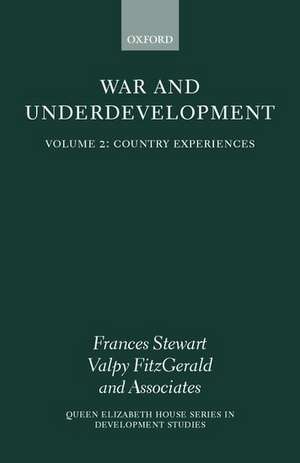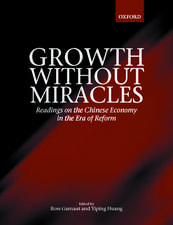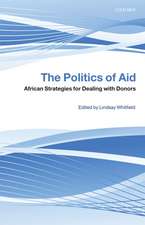War and Underdevelopment: Volume 2: Country Experiences: Queen Elizabeth House Series in Development Studies
Editat de Frances Stewart, Valpy Fitzgeralden Limba Engleză Hardback – 7 dec 2000
| Toate formatele și edițiile | Preț | Express |
|---|---|---|
| Paperback (1) | 354.95 lei 31-38 zile | |
| OUP OXFORD – 30 noi 2000 | 354.95 lei 31-38 zile | |
| Hardback (1) | 469.93 lei 31-38 zile | |
| OUP OXFORD – 7 dec 2000 | 469.93 lei 31-38 zile |
Preț: 469.93 lei
Preț vechi: 682.99 lei
-31% Nou
Puncte Express: 705
Preț estimativ în valută:
89.93€ • 93.77$ • 74.74£
89.93€ • 93.77$ • 74.74£
Carte tipărită la comandă
Livrare economică 10-17 martie
Preluare comenzi: 021 569.72.76
Specificații
ISBN-13: 9780199241880
ISBN-10: 0199241880
Pagini: 324
Ilustrații: 32 figures
Dimensiuni: 163 x 242 x 23 mm
Greutate: 0.62 kg
Editura: OUP OXFORD
Colecția OUP Oxford
Seria Queen Elizabeth House Series in Development Studies
Locul publicării:Oxford, United Kingdom
ISBN-10: 0199241880
Pagini: 324
Ilustrații: 32 figures
Dimensiuni: 163 x 242 x 23 mm
Greutate: 0.62 kg
Editura: OUP OXFORD
Colecția OUP Oxford
Seria Queen Elizabeth House Series in Development Studies
Locul publicării:Oxford, United Kingdom
Recenzii
The major contribution of War and Underdevelopment lies in the light that it sheds on the workings of economies during war ... an intellectually challenging read ... There is clearly much to be digested not just by fellow academics but, above all, by development agencies and foreign ministries in donor countries.
Two excellent volumes ... Their strength derives, in the first instance, from the breadth and quality of the case material.
The first major work on this topic to systematically combine theoretical and empirical analysis and move on to pragmatic recommendations. It richly deserves academic and political readers
The two volumes are most valuable, as much in what they cover as in the questions they provoke. The study opens an important field of future work and policy concern, closely related to the real issues confronting some very poor countries
Two excellent volumes ... Their strength derives, in the first instance, from the breadth and quality of the case material.
The first major work on this topic to systematically combine theoretical and empirical analysis and move on to pragmatic recommendations. It richly deserves academic and political readers
The two volumes are most valuable, as much in what they cover as in the questions they provoke. The study opens an important field of future work and policy concern, closely related to the real issues confronting some very poor countries
Notă biografică
Frances Stewart is Director, Queen Elizabeth House, University of Oxford, and Professor of Development Economics and Fellow of Somerville College, University of OxfordValpy Fitzgerald is Director, Finance Trade and Policy Centre, Queen Elizabeth House, University of Oxford












